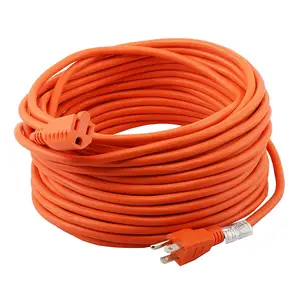Introduction to Extension Wire DIY
Extension wire DIY solutions are essential for those looking to customize their electrical projects. These versatile wires allow users to create their own connectivity solutions, ensuring that they can extend electrical connections as needed. Whether you are a hobbyist, a professional electrician, or a DIY enthusiast, understanding the nuances of extension wire can greatly enhance the quality and functionality of your projects.
Types of Extension Wire DIY
- Multistrand Wire: Made up of several fine strands twisted together, making it flexible and ideal for tight spaces.
- Solid Wire: A single, solid conductor that is robust and better for permanent installations.
- Shielded Wire: Contains a shielding layer to protect against interference, making it perfect for sensitive electronics.
- High-Temperature Wire: Specifically designed to withstand extreme heat, suitable for automotive applications and high-performance tasks.
Function and Feature of Extension Wire DIY
- Conductivity: Extension wires are crafted from high-quality materials to ensure maximum conductivity, allowing for efficient power transfer.
- Insulation: The wires are commonly insulated with materials that provide excellent resistance to abrasion, heat, and electrical leakage.
- Flexibility: Many types of extension wires are designed to be highly flexible, making them easier to work with and ideal for intricate installations.
- Color-Coding: Wires often come in various colors to help differentiate circuits, making it easier to manage complex projects.
Applications of Extension Wire DIY
- Home Renovations: Perfect for extending lighting fixtures, electrical outlets, or appliances in home improvement projects.
- Automotive Wiring: Used to connect aftermarket accessories or repair existing electrical connections in vehicles.
- DIY Electronics Projects: Essential for hobbyists creating custom circuits or building prototypes.
- Networking Solutions: Ideal for extending LAN cables to enhance internet connectivity in various settings.
Advantages of Using Extension Wire DIY
- Customization: Users can create specific lengths and configurations that meet their unique project requirements.
- Cost-Effective: Buying raw extension wire is often cheaper than purchasing pre-made cables, saving you money over time.
- Enhanced Skills: Working with extension wire DIY allows individuals to develop their electrical skills and gain hands-on experience.
- Versatility: With numerous types available, extension wires can be adapted for a wide range of applications, from everyday tasks to specialized projects.





























